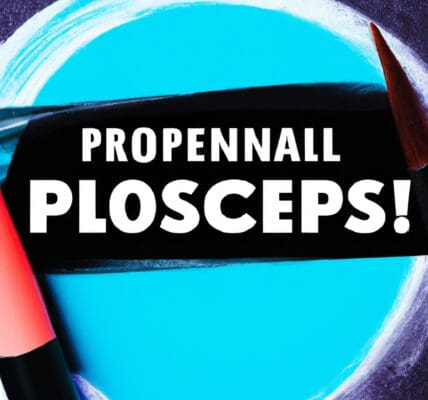As the retail landscape evolves, so do the strategies employed by Consumer Packaged Goods (CPG) companies. The 2024 Category Captains reveal a focused commitment from leading brands to enhance sales not only for themselves but also for entire categories and stores. Progressive Grocer’s selection of 17 companies reflects innovative partnerships and approaches to merchandising that foster deeper consumer engagement and growth.
Abbott Nutrition
Abbott Nutrition identified a significant market share gap of five points, worth $27.5 million, in the oral electrolytes category for a national retailer. Through diligent research on shopper behavior, Abbott crafted a category strategy aimed at boosting market share. Notably, the oral electrolytes market has grown, with brand counts increasing by 400% since 2019. Responding to consumer expectations, Abbott introduced competitively priced Pedialyte products into the retailer’s warm-beverage aisle, capitalizing on the rising adult usage of electrolytes. Consequently, Pedialyte secured the No. 2 share position in the isotonic warm-beverage set, serving as a testament to well-executed category management.
Chiquita Brands International
Chiquita’s innovative EZ Vent Box has redefined banana management for retailers, enhancing product quality and efficiency. The new packaging minimizes bruising while ensuring optimal ripening during transit, significantly reducing handling time and labor costs. Furthermore, extensive brand-building campaigns utilizing diverse media channels cultivated a strong consumer connection. Strategic partnerships with retailers facilitated eye-catching co-branded campaigns, leading to the implementation of permanent secondary displays in nearly 2,000 stores, boosting impulse purchasing opportunities.
Filippo Berio USA Ltd.
With a remarkable 25% increase in dollar sales for the extra-virgin olive oil (EVOO) category, Filippo Berio stands out as a leader in the market. The company introduced a refreshed EVOO lineup that guides consumers on flavor profiles, catering to various culinary needs. Their extensive marketing strategies across press releases, in-store activations, and social media campaigns ensured strong visibility and customer engagement. Filippo Berio also secured its position as the top brand in the U.S. pesto market, contributing heavily to overall category growth.
Flowers Foods
To address geographical distribution challenges, Flowers Foods collaborated with a prominent regional retailer to develop a unique supply chain method that avoids traditional direct store delivery systems. This innovative approach enabled the delivery of fresh, packaged bread, reinforcing Flowers’ market presence. Their category team undertook a granular analysis of store-level performance, guiding necessary space allocations and optimizing sales strategies for spring 2024, ultimately benefiting the entire bread category.
Fresh Express
In response to rising consumer concerns over food prices, Fresh Express revised its produce promotion strategies in partnership with retailers. The goal was to create promotional offers that resonate with shopper preferences and purchasing habits. Shifting from “three for” multipliers to “two for” or single-item deals, along with attractive discounts, helped improve unit sales and reduce food waste. Furthermore, Fresh Express’s emphasis on global flavor innovations attracted younger consumers, enhancing market share through increased dollar and unit sales.
Frieda’s Branded Produce
Frieda’s commitment to storytelling within category management has reaped rewards, particularly with their passion fruit program. Partnering with a female- and family-owned farm, Frieda’s focused on direct consumer engagement through immersive experiences. In-store displays, educational signage, and QR codes that connect consumers to the grower’s story have all contributed to an impressive growth trajectory for passion fruit sales, significantly outperforming the category.
Gallo Winery
Gallo’s innovative approach to the ready-to-drink (RTD) sector has revitalized the wine category, effectively curbing previous sales declines. Their RTD product, ViBE by Vendange, has broad appeal, attracting both traditional wine consumers and those new to the segment. Comprehensive marketing efforts across multiple platforms have resulted in a notable 26% repeat purchase rate and significant uplift in overall sales, underscoring the value of strategic product diversification.
The Hershey Company
Focusing on strategically placed displays, Hershey improved visibility for unplanned candy purchases. By implementing beacon end caps in nearly 300 stores, the company recorded a boost in sales for specific SKUs, alongside a noted increase in basket penetration and dollar sales compared to stores without such merchandise displays. Given the success, Hershey’s plans to roll out an additional 200 beacon end caps by the end of 2024, further enhancing its promotional strategy.
Hormel Foods
Hormel Foods confronted challenges in the snack nuts category through insights garnered from Dollar General. Their collaborative strategy led to the introduction of a new peanut segment featuring appealing flavors and convenient packaging. Additionally, fresh merchandising plans tailored to a small-format environment revitalized overall sales, demonstrating the importance of responsive category management in competitive segments.
Kraft Heinz
Kraft Heinz employed consumer-driven tactics to revamp the sauce and Mexican categories by reorganizing aisle layouts based on shopper decision-making patterns. These efforts not only boosted engagement but also increased sales across multiple subcategories, proving that understanding consumer behavior is critical in driving retail success.
Mars Food & Nutrition
Mars Food & Nutrition’s research-led initiatives have enhanced rice and grains category sales across the U.S. and Canada. New merchandising principles derived from shopper research have led to meaningful increases in basket size, showcasing the power of data analytics in retail environments.
Mission Produce
Having established its reputation in avocados, Mission Produce expanded into the mango category with an innovative ripe mango program. By ensuring mangoes were ripe prior to retail delivery, the company boosted consumer engagement and increased purchase frequency, capitalizing on an emerging market demand.
NatureSweet Tomatoes
Earning B-Corp status has set NatureSweet apart in the competitive fresh produce field, showing that ethical business practices resonate with consumers. Their commitment to sustainability has paid dividends, with noted increases in dollar sales and customer base expansion. As consumer values shift towards corporate responsibility, NatureSweet illustrates the intersection of profitability and positive impact.
Nestlé Purina PetCare
By employing a transparent AI planning system, Nestlé Purina enabled optimized assortment choices to grow the pet category within retail environments. This advanced data analytics approach allowed for insightful predictions and strategic recommendations tailored to retailer needs.
Pharmavite LLC
Pharmavite’s deep knowledge of the vitamin category has fueled its ability to address market gaps with new product introductions. Their integrated digital marketing efforts, emphasizing co-purchase opportunities, have further strengthened category sales, proving the efficacy of cohesive strategies in enhancing growth.
Pompeian Inc.
Pompeian’s innovative collection of olive oils addressed consumer confusion while emphasizing ease of use. Marketing efforts underscored product superiority through campaigns that fostered significant brand lift and increased unit loyalty, effectively enhancing their market presence.
Sweet Loren’s Inc.
Sweet Loren’s has exploited the rising demand for better-for-you cookie dough options among younger consumers. Innovative product launches driven by consumer insights have positioned the brand for incremental sales growth, demonstrating the importance of adapting to market trends.
These 17 companies exemplify strategic innovation and collaboration within the retail sector. By prioritizing consumer insights, adapting to market needs, and forging strong partnerships in category management, they continue to set exemplary standards for the CPG industry.











